Symptoms, signs of common kidney disease
The signs of kidney disease will tell you when your body has the disease and the necessary cures. According to many studies, men have a higher incidence of kidney disease than women.
The kidneys are very important organs in the human body, belonging to the body's excretory system. The kidneys help filter and eliminate toxins from the body through the secretion. Only one of the kidneys is missing and it has a great effect on human health.
The kidneys have major roles such as:
- Help balance the amount of fluid in the body
- Help balance the minerals that the body needs to function normally.
- Help release the amount of hormones that the body needs into the blood such as renin, erythropoietin to help bone marrow make red blood cells.
- Help activate vitamin D to absorb calcium in food more easily.
- Types of kidney disease that the body may encounter include: Kidney stones, kidney failure, chronic kidneys, kidney failure, glomerulonephritis and kidney cancer.
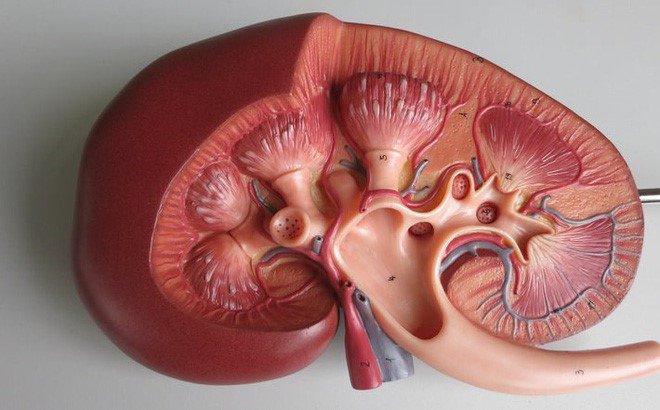
Symptoms, signs of kidney damage
Nephrotic kidney disease, or nephrotic syndrome, is also known as steatosis. This is a common and very common disease, it causes edema, decreased blood protein and increased fat in the kidneys, signs of kidney damage can include:
- Body edema, pleural effusion
- Urinating less often than usual
- Fatigue, pale skin
- Poor appetite, anorexia
- Fever, sometimes high fever
- Nausea, discomfort
- Lose weight fast
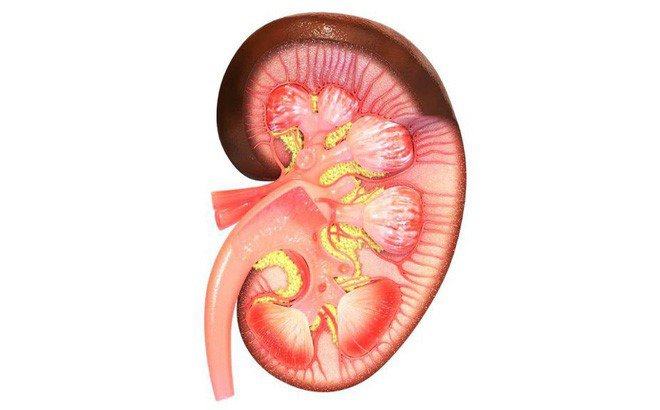
Signs of kidney disease
Signs of kidney stones
Kidney stones are caused by a buildup of minerals inside the kidneys forming large-diameter particles, obstructing the urine, ureter, etc. If not treated early, the disease will cause unpredictable consequences. Typical symptoms of kidney stones are as follows:
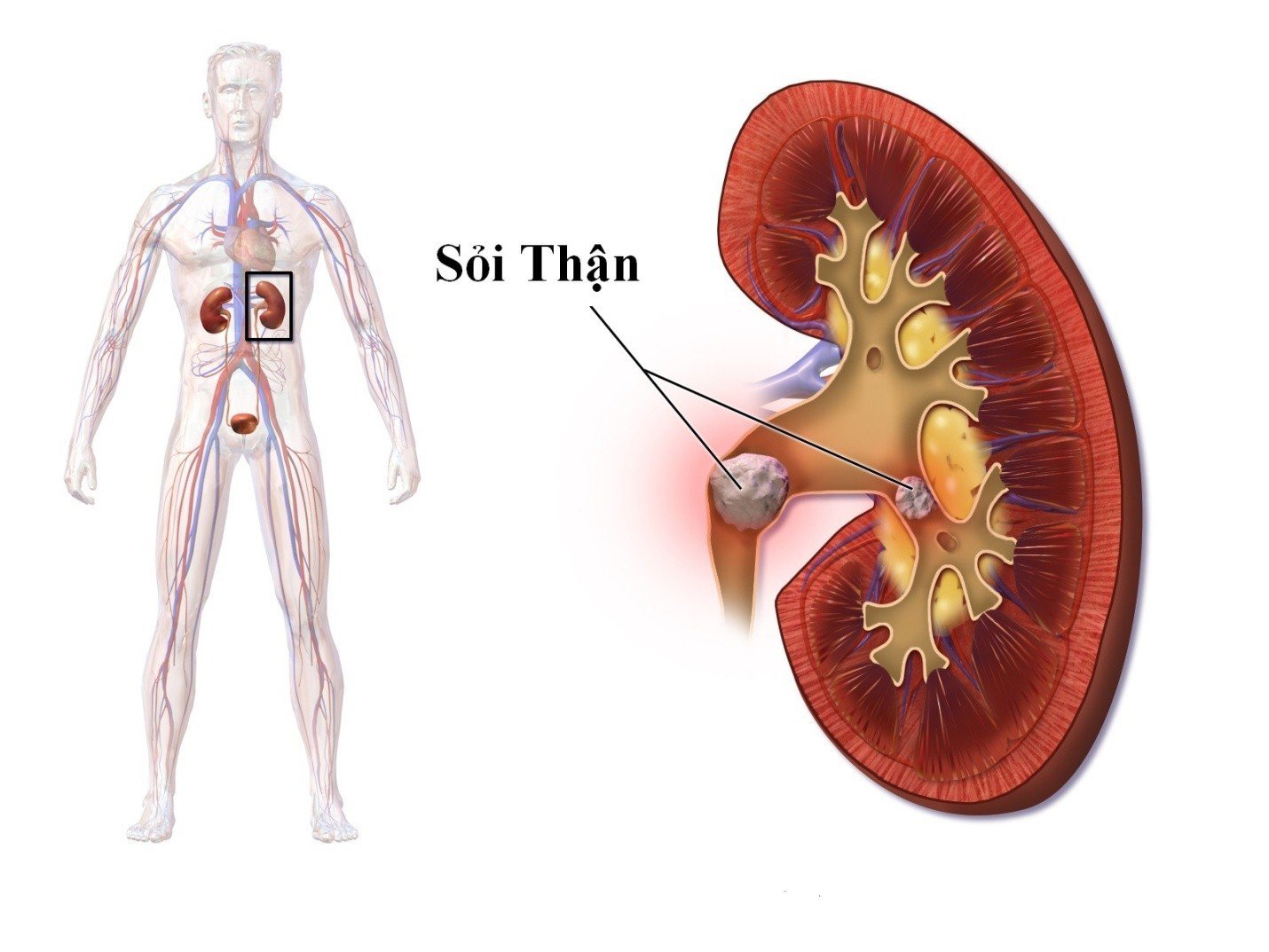
- Backache, lower back
- Pain when urinating
- Pissing, pooping
- Bloody and painful urination
- Or fever, body chills
- Body weakness, more tired
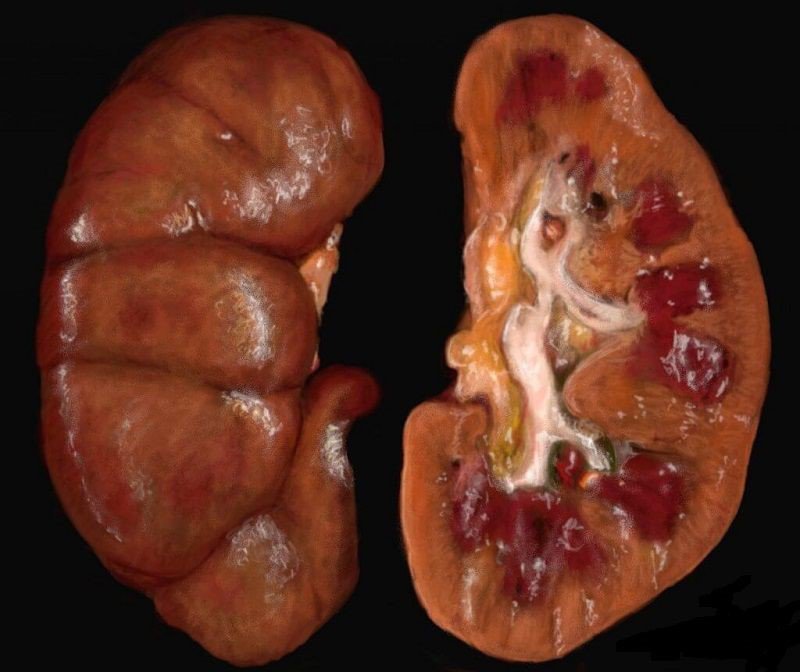
Symptoms of glomerulonephritis
When your kidneys appear inflamed, including inflammation in the blood vessels and glomeruli, be careful because now you have glomerulonephritis. Glomerulonephritis can cause kidney failure, even death if not treated promptly. Signs of glomerulonephritis are as follows:
- High blood pressure, usually in the stage of acute glomerulonephritis
- Prolonged hypertension can damage the brain, causing a catastrophic event
- Urinating with blood, urinating less than usual
- Facial edema, ankles, limbs
- Mild fever to high fever
- Dull pain in the lower back, lower ribs
- Severe abdominal pain, bloody discharge
- Nausea, vomiting
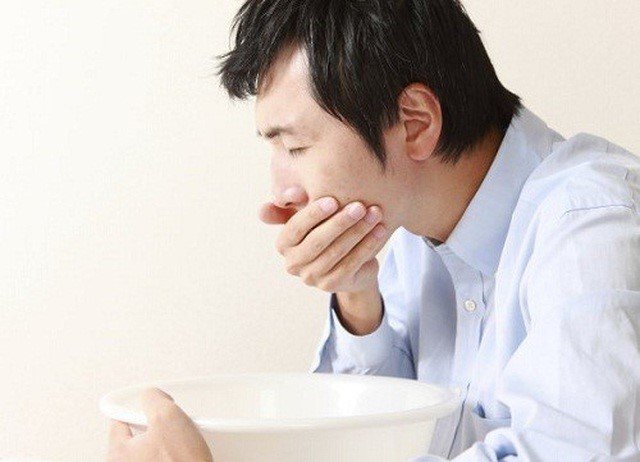
Signs of early renal failure
Kidney failure is a condition in which your kidneys fail to function properly. Typically, signs of kidney failure will appear when the kidney's condition is at an alarming level. So early detection of the disease is extremely important, signs of kidney disease can include such as:
- Nausea, vomiting
- Fatigue, uncomfortable body
- Or high fever, chills
- Peeing a lot, especially at night
- Sleep disorders, even insomnia
- Greenish, lifeless
Nausea warns early signs of kidney failure
Signs of chronic kidney disease
Chronic kidney disease is a long-term stage of kidney failure that has not been fully treated. Chronic kidney disease makes the body seriously depleted, the risk of death if not treated promptly. Signs of chronic kidney disease include:
- Lose Weight Fast
- Poor appetite, anorexia, appetite
- Swollen ankles, limbs
- There is blood in the urine
- Muscle pain, phenomenon of cramps
- Urinate more at night
- Erectile dysfunction in men
Symptoms and signs of kidney cancer
Kidney cancer is one of the most common cancers in humans. The disease is silent and lasts for years, which can be fatal if not cured. Common signs of kidney cancer include:
- Abdominal enlargement, tumor appearance
Bloody urine or pink urine
- Pain in the lower back, lower ribs, dull ache lasts
- Fatigue, asthenia due to anemia
- Sudden weight loss
- High fever
- Anorexia, appetite
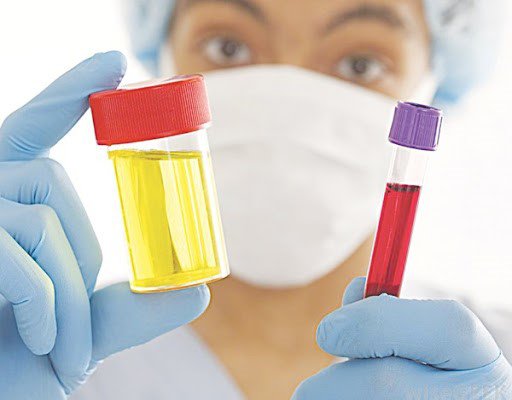
Bloody urine warns of kidney cancer
How to prevent the signs of kidney disease effectively
- Stay away from alcohol, cigarettes, stimulants: These are toxic substances to the body, causing the body to weaken, affecting the kidneys
- Eat more fruits and vegetables to provide vitamins, fiber for the body
- Stay away from greasy, cholesterol-rich foods: High-fat foods can damage the liver and kidneys in general, not good for health.
- Eat light, low salt: This avoids excess and mineral deposits in the body.
- Active living healthy, exercising in moderation
- Use diuretics if you have problems urinating or your body has edema as directed by your doctor
- Do not arbitrarily buy drugs for self-treatment
Some frequently asked questions about kidney disease
1. How to detect kidney problems early?
When your body has abnormal weight loss, weakness, fatigue, poor urination ... Immediately go to the medical facility for timely examination and treatment. Doctors will conduct tests to find out the cause as well as have an appropriate treatment plan for kidney disease.
2. What are the 5 stages of kidney disease?
Stage 1: The lightest stage, almost no signs of kidney disease and associated symptoms
Stage 2: Detecting protein in urine, urinating worse than normal.
Stage 3: Edema of limbs and ankles appears. Also may appear back pain, lower back pain
Stage 4: Body weakness, anemia, frequent high fever, high blood pressure. The kidney function begins to decline markedly.
Stage 5: The kidney function is completely gone. The body always feels nauseous, uncomfortable, short of breath, heart attack, itchy. At this time need to conduct kidney transplant or dialysis regularly
3. Can kidney disease be cured?
It is completely possible to cure kidney diseases if detected early and timely treated. If you allow the disease to develop in more advanced stages, the risk of kidney replacement and dialysis is what will happen.
4. Kidney disease eat and abstain from what?
Kidney disease should eat lots of fruits and vegetables that contain vitamins and fiber that are beneficial to the body.
Drink enough daily fluid that your body needs
Increasing or decreasing protein intake depends on the course of the disease
Avoid foods that are too salty, high in potassium and sodium
Limit the amount of phosphorus put into your body each day
Don't eat fried, greasy, and cholesterol foods
Consult a dietitian to help you stay healthy
- Summary of foods that children should avoid if they do not want their children to precocious puberty
- Men with these 4 positions on the body the bigger the faster life expectancy decreases
- Gallbladder stones should eat, what to abstain, what to drink to get well soon?
- Gallstones: Causes, signs and complications
- Sun pain warning any dangerous diseases?
Operate and exploit advertising by iCOMM Vietnam Media and Technology Joint Stock Company.
Adress: 99 Nguyen Tat Thanh, To 2, Khu 6, Thi tran Tan Phu, Tan Phu, Dong Nai.
Email: phuongtran2191@gmail.com | Tel: (+84) 984654960
Editor in chief: Tran Nha Phuong
Company: Lucie Guillot (Nha Phuong Tran)




